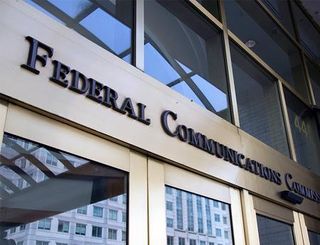FCC Launches Revamp of Few Remaining Cable Rate Regs

The FCC has voted unanimously to take a new look at cable rate regs with an eye toward lifting regs on smaller operators and some on larger ones as well, while FCC Commissioner Michael O'Rielly took the opportunity to call for broader cable dereg.
The item was a notice of proposed rulemaking (NPRM) combined with a report and order, so stakeholders can comment before a vote on a final order for the NPRM. The Report and Order takes the regulatory whacker into the weeds, getting rid of rules the FCC says are obsolete, like ones linked to non-basic service no longer regulated; or are unnecessary given current industry practices, or for other reasons. It also sunsets some obsolete forms.
Among the R&O's other housecleaning measures is to codify that where an operator offers its equipment for sale and lease, the sale price is unregulated.
It is just one of the latest potential regulatory underbrush-clearing in FCC Chairman Ajit Pai's Media Modernization efforts and one of two approved at the Oct. 23 monthly public meeting--the other was on broadcast contracts.
The item asks whether the commission should deregulate rates for small cable systems owned by small operators, in part because it isn't sure there are any such systems currently rate regulated. Actually, the only chance to find such systems would be in Hawaii and Massachusetts, the only states where basic cable rates are still regulated--nonbasic rates were deregulated years ago by Congress.Few Remaining
It is also seeking comment on whether it should simplify the rate reg framework for everyone, eliminate rate regs by local franchise authorities on equipment used to receive cable services beyond the still-regulated (in Hawaii and Massachusetts) basic tier, and tentatively concludes it should deregulate rates for commercial customers including bars and restaurants, pointing out that it has never applied its rate regs to cable business customers anyway.
In the NPRM, the FCC signaled it was time to rethink cable rate regs given that rate regs beyond the basic tier were deregulated a couple of decades ago, most basic service is deregulated because the FCC now presumes a market is competitive given the presence of satellite TV and other options.
FCC Chairman Ajit Pai signaled it would probably not be the last whack at the cable reg weeds. He said there were a mind-numbing 52 pages of such regs and that it was time for a wholesale review of the complicated Web of cable regs, saying it was consistent with his overall philosophy that regs should match today's marketplace.
Commissioner O'Rielly agreed and spelled out just how cable operators needed broader deregulation, and why.
"From a larger perspective, we need to acknowledge and substantially deregulate 'cable operators' to reflect the current state of the video marketplace, which includes well-funded and highly successful over-the-top providers that are rightfully not governed by archaic rules designed to implement woefully outdated statutory provisions," he said.
O'Rielly ticked off some specific reforms he said the FCC should ponder: "(1) limit the shenanigans of LFAs during franchise transfers and renewals; (2) prevent mandated new broadband network builds for use by LFAs; (3) state that GAAP accounting is appropriate when determining franchise fees; (4) allow cable operators to modify their franchises so that they can better respond to market conditions; and (5) allow cable operators to offer “skinny bundles” to respond to market demands."
He said those would go "a long way towards removing added burdens placed on cable operators at the expense of consumers."
Not surprisingly, NCTA-The Internet & Television Association was pleased at the deregulatory progress so far.
“We support today’s action by the FCC to simplify and modernize the rate regulation process," it said. "The television marketplace is significantly different than it was when the Commission first established its benchmark rate rules decades ago, and today’s vote is an important step to remove antiquated regulations and find better solutions for the highly competitive modern era.”
Multichannel Newsletter
The smarter way to stay on top of the multichannel video marketplace. Sign up below.
Contributing editor John Eggerton has been an editor and/or writer on media regulation, legislation and policy for over four decades, including covering the FCC, FTC, Congress, the major media trade associations, and the federal courts. In addition to Multichannel News and Broadcasting + Cable, his work has appeared in Radio World, TV Technology, TV Fax, This Week in Consumer Electronics, Variety and the Encyclopedia Britannica.

